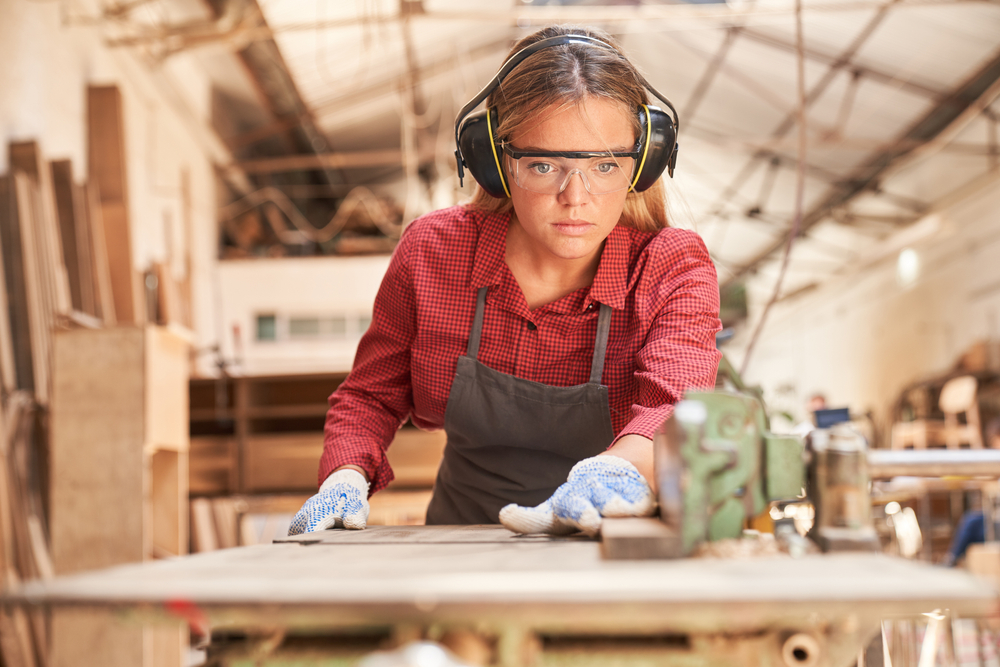
Whether you’re attending concerts, at work, or doing some yard work, hearing protection is crucial in keeping your ears safe against hazardous noise levels. However, you could be left exposed to possible risks if any one of a number of potential factors interferes with your hearing protection’s effectiveness. Understanding these problems can help you address them proactively and maximize the advantages of your protective gear.
Common reasons why hearing protection falters
Unexpected difficulties will arise even when you maintain best practices. You steer clear of overly loud situations as much as you can, use earplugs at concerts, and vigilantly use earmuffs at work. Yet, certain variables can still interfere with your hearing protection’s effectiveness. Luckily, you can ensure the protection of your hearing by becoming aware of these common issues and making educated adjustments.
1. Specific circumstances call for specific types of hearing protection
Hearing protection isn’t one-size-fits-all, and selecting the wrong type for a given environment can decrease its effectiveness.
There are generally two primary categories of hearing protection:
- Earmuffs: Bigger, headphone-like device that covers the whole ear.
- Earplugs: Small, flexible inserts that fit snugly inside the ear canal.
There is an ideal type for each situation:
- Earmuffs are better for situations with periodic noise, like a construction site where machinery starts and stops constantly.
- Settings with a constant noise threshold, including a factory floor or the cabin of an airliner, are the perfect times to use earplugs.
Earmuffs are easier to manage when there is a need to frequently put on and remove your hearing protection. However, earplugs, particularly disposable ones, can be easily lost, leaving you unprotected when noise levels rise again. The first step towards successfully protecting your hearing is to choose the right type of hearing protection.
2. Fit and function are impacted by anatomy
Some devices will fit better than others based on the size and shape of the person’s ears. Standard earplugs and earmuffs are usually designed with average dimensions in mind, but your ear anatomy might require a more customized solution.
- Larger ear structures: Oversized ears can make earmuffs uncomfortable, causing gaps in the seal that allow noise to enter.
- Smaller ear canals: The noise-blocking ability of standard-sized earplugs may not be effective if narrower ear canals prevent the formation of a proper seal.
Poorly fitting hearing protection can result in frustration and a desire to abandon their use entirely, putting your hearing in danger. Consider opting for custom-fitted earplugs or professionally fitted earmuffs if you spend a great deal of time in loud settings. These personalized solutions provide maximum comfort and effectiveness, ensuring you remain protected in any situation.
3. Failing to maintain or replace hearing protection
In order to remain effective, hearing protection devices need to be properly maintained just like any other devices do. Wear and tear, incorrect cleaning, and disregarding replacement schedules can all undermine their ability to protect your ears.
The following are a few tips on how to maintain hearing protection:
- Check for Damage: Regularly inspect the elastic band on earmuffs. A slack or stretched band can reduce their snug fit, diminishing their noise-blocking ability.
- Clean Properly: Earplugs and earmuffs are exposed to earwax and other debris, which can build up over time. Wash them regularly using manufacturer-recommended techniques to ensure cleanliness without damaging the material.
- Replace Cushions: Over time, earmuff cushions can lose their pliability. In order to maintain a proper seal, replace the cushions when needed.
Disregarding these simple maintenance duties can leave your hearing protection less effective or even unusable. Regular maintenance is essential to extend their lifespan and ensure consistent performance.
The advantage of a hearing specialist
If you’re uncertain whether your hearing protection is working, schedule an assessment appointment with us. After examining your devices, we can help you with a customized solution that will work best for you.
Safeguarding your hearing is a lifelong commitment, and it’s worth the effort to ensure you’re using the best tools for the job. You can protect and preserve your hearing for many years by managing these common challenges.